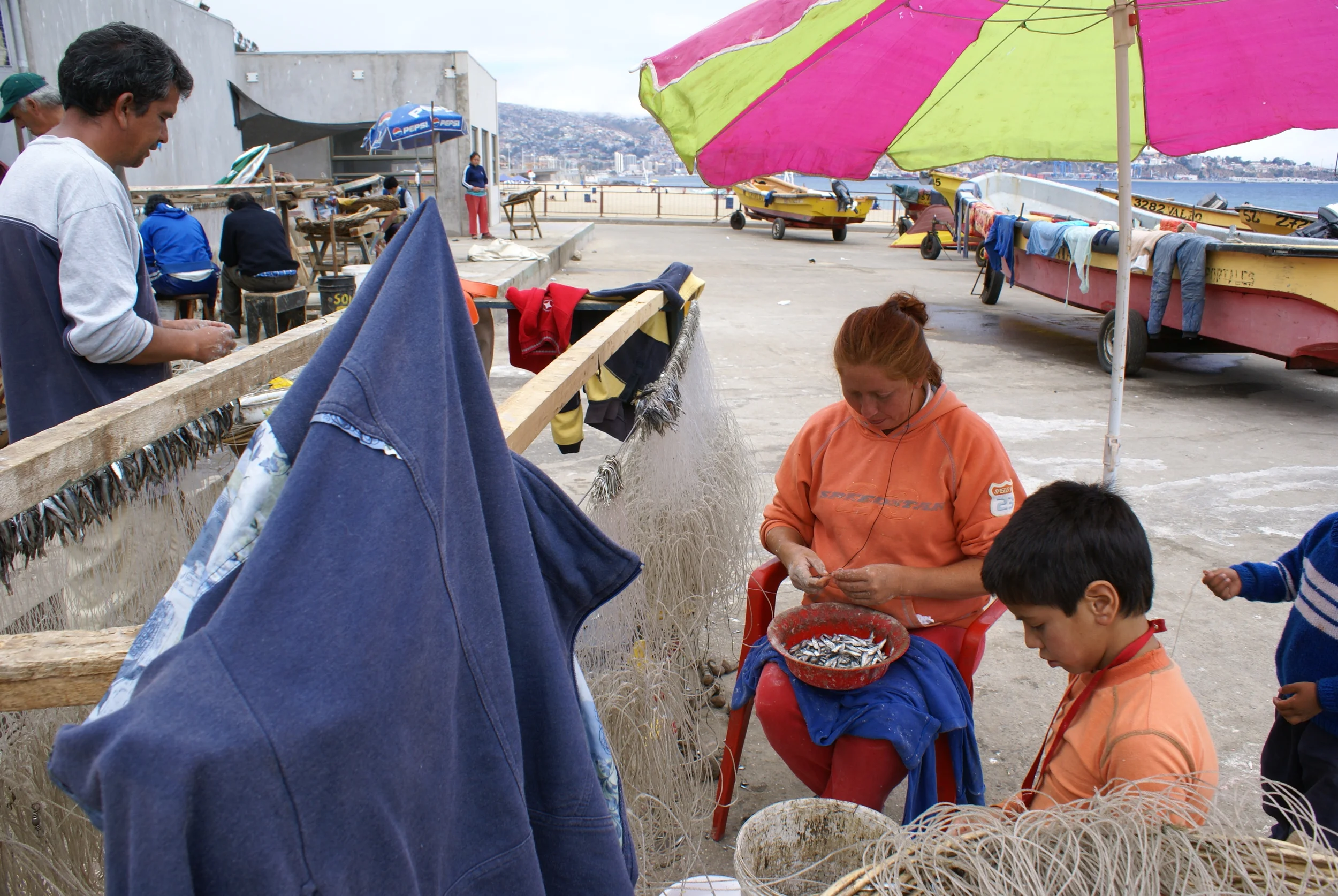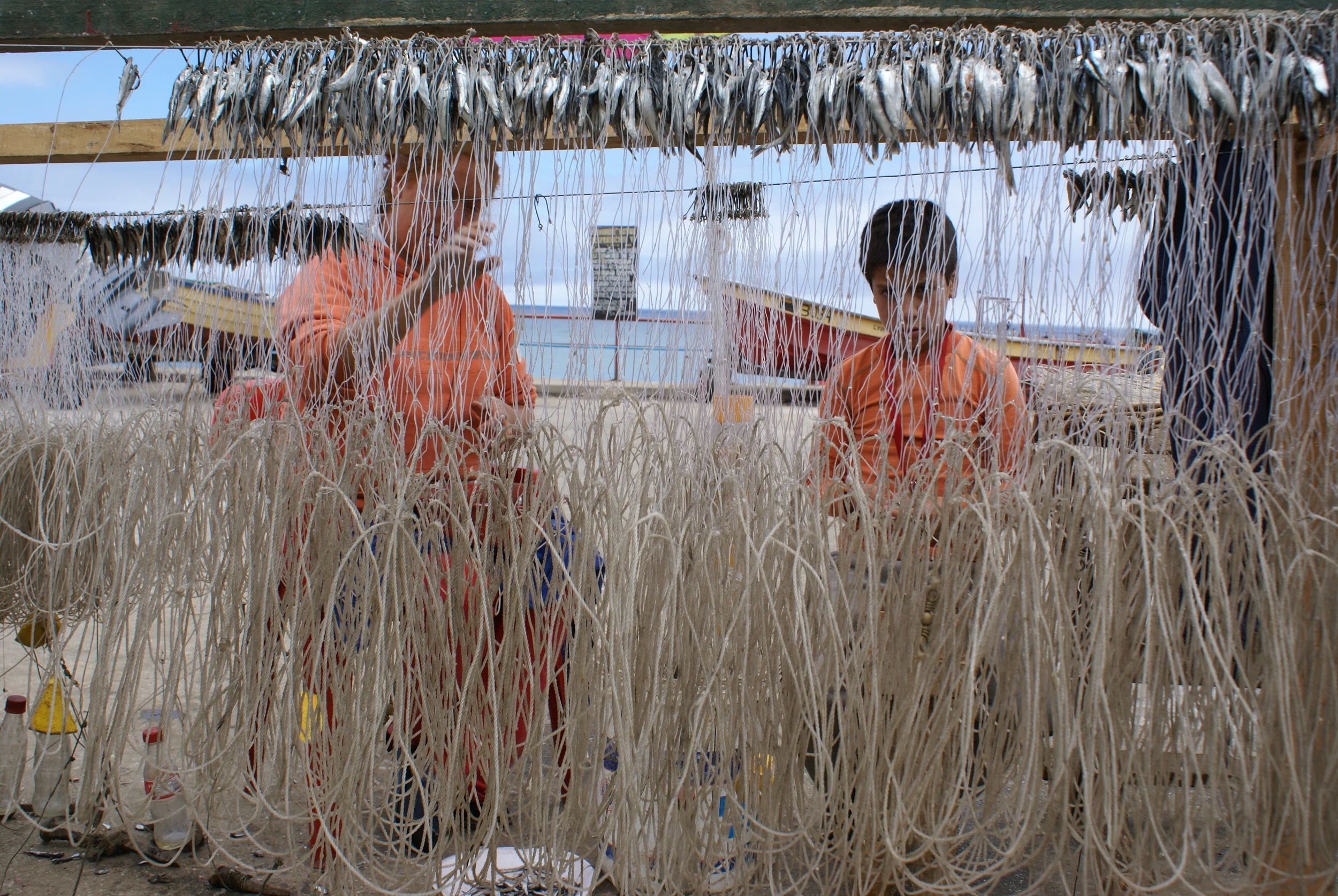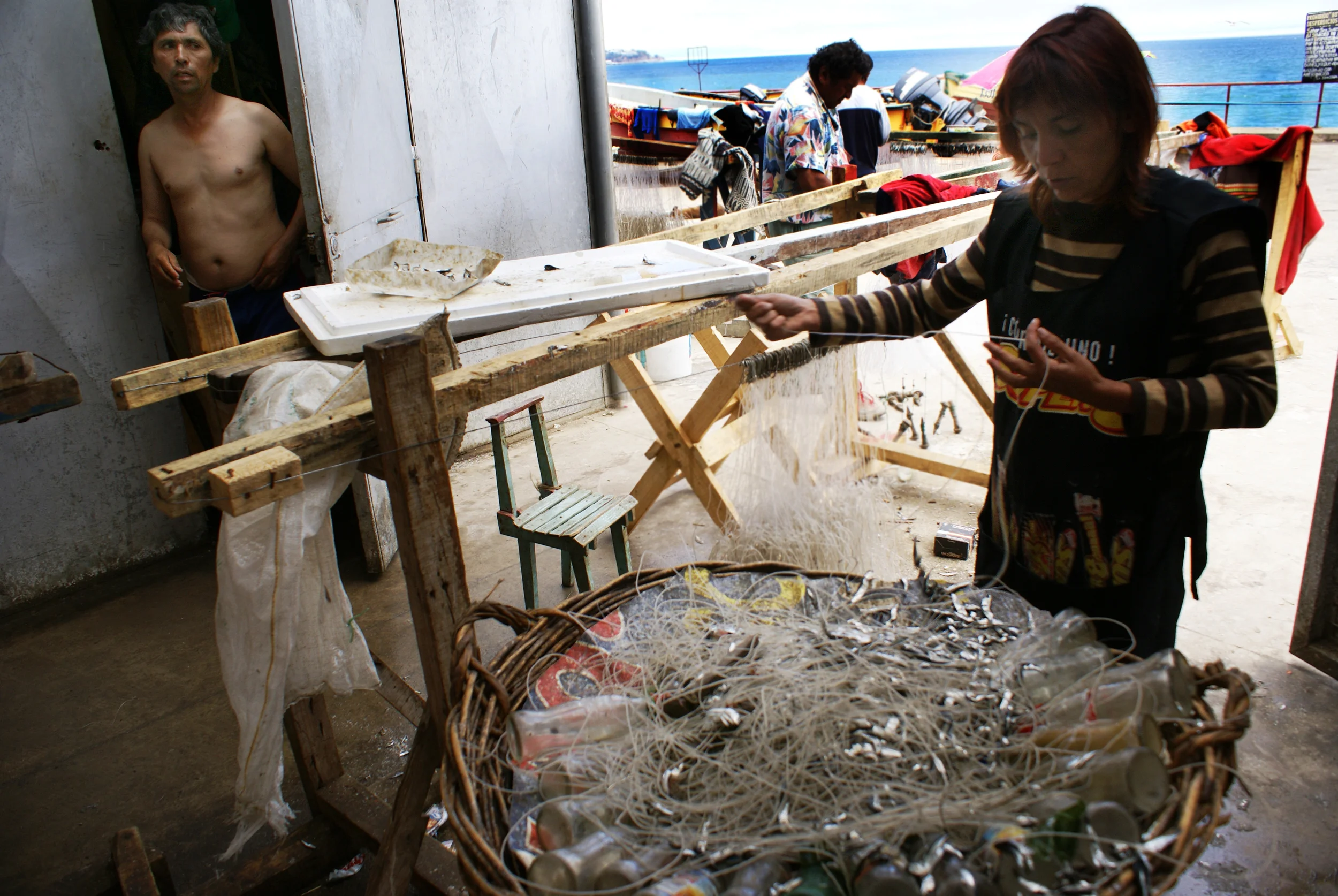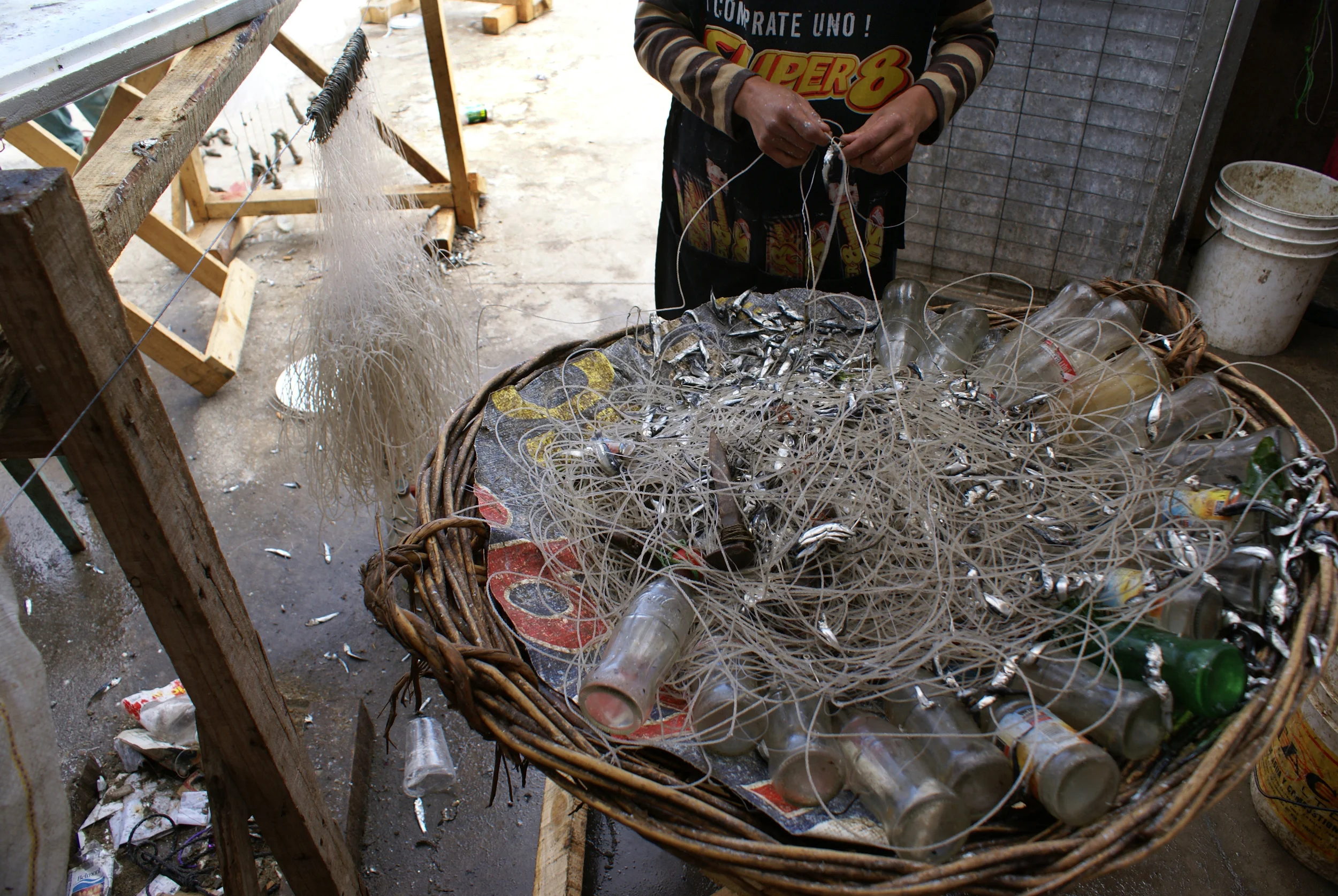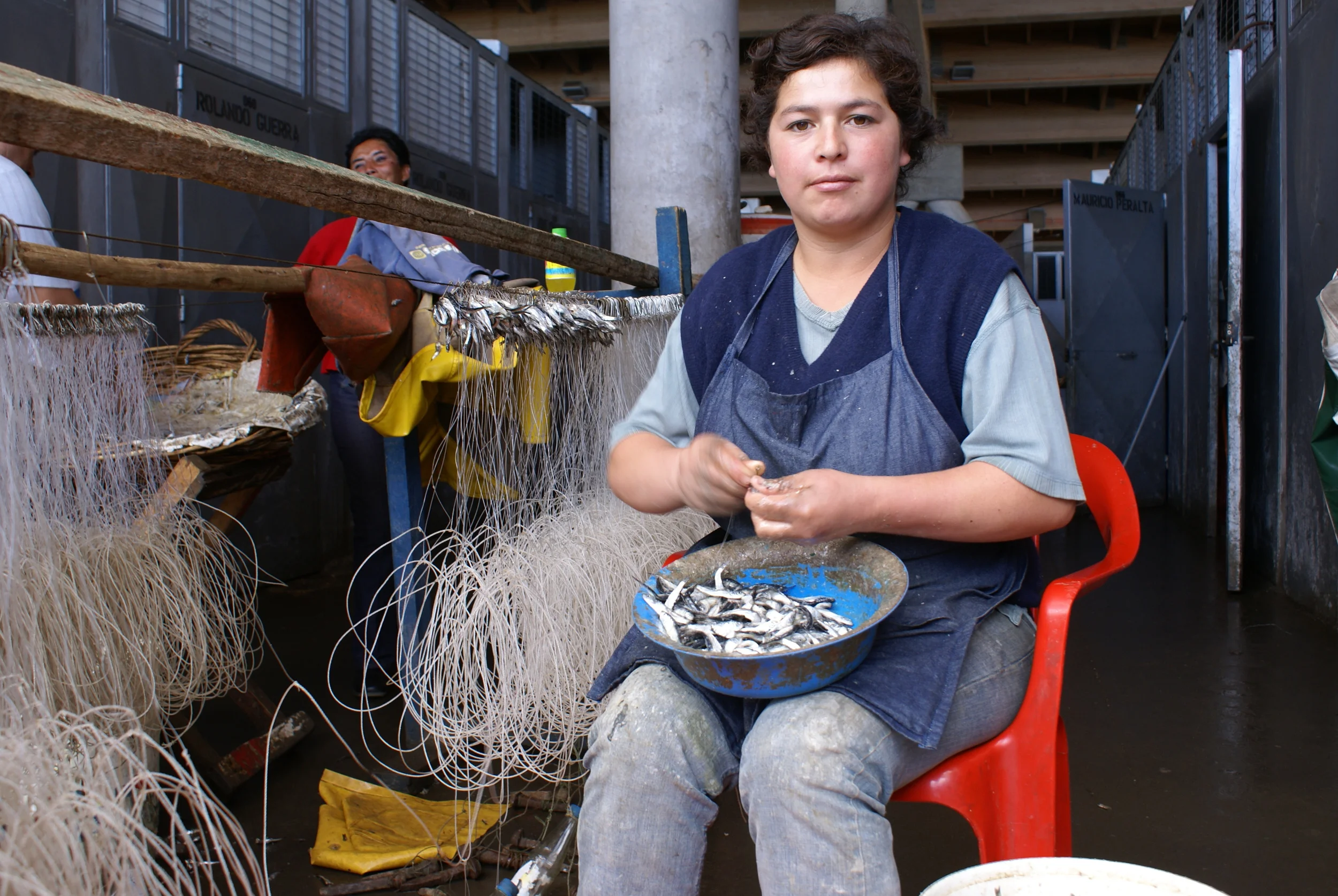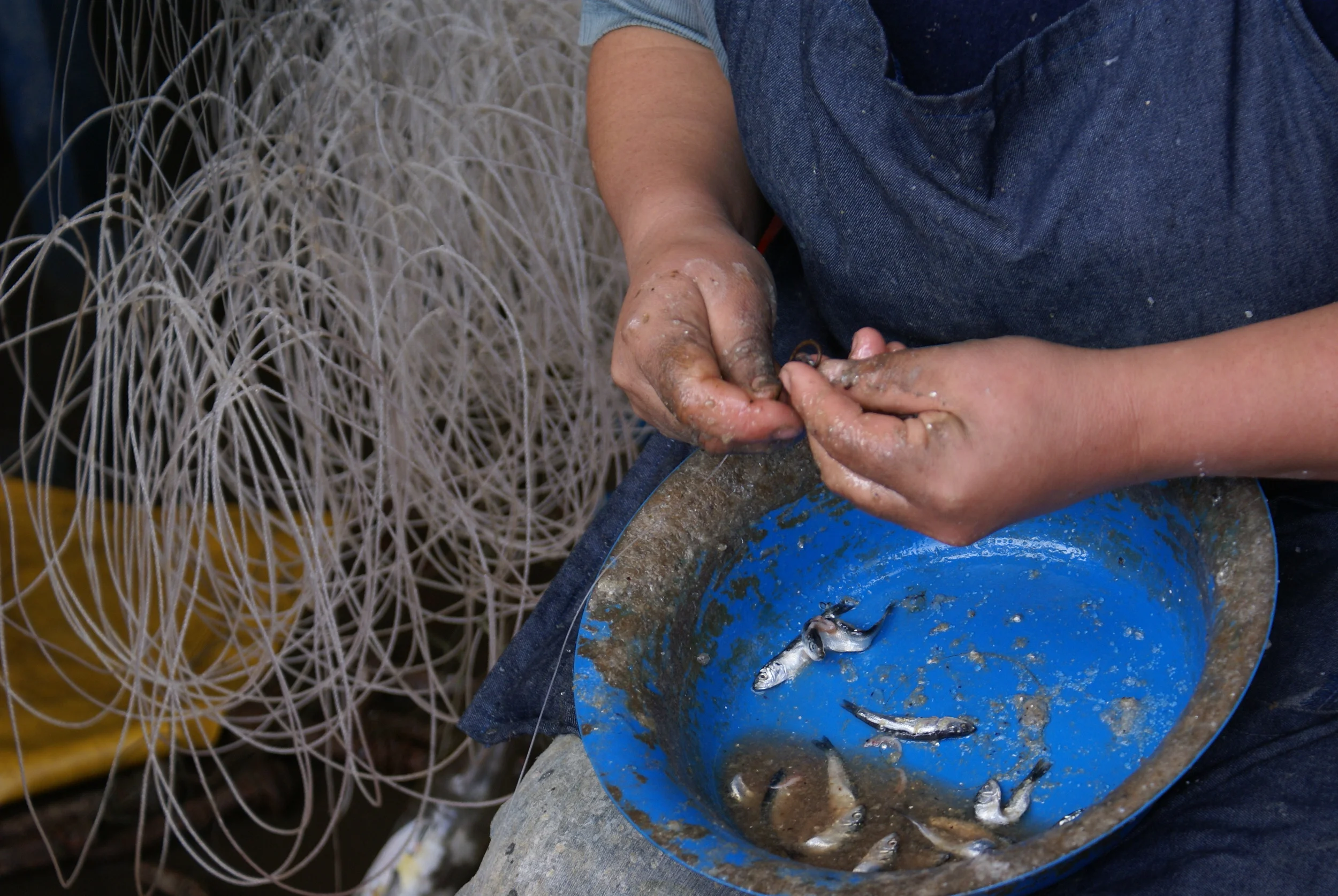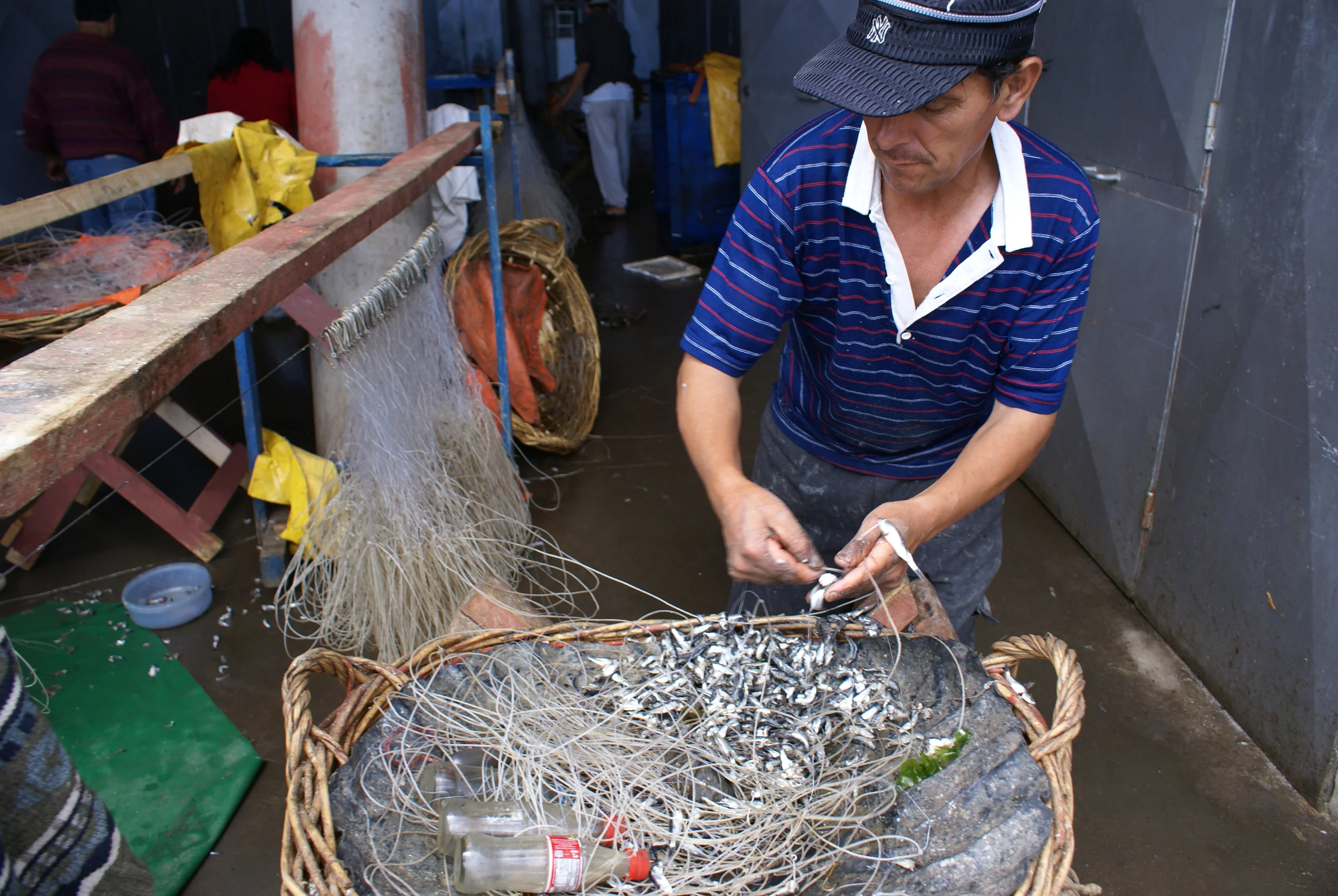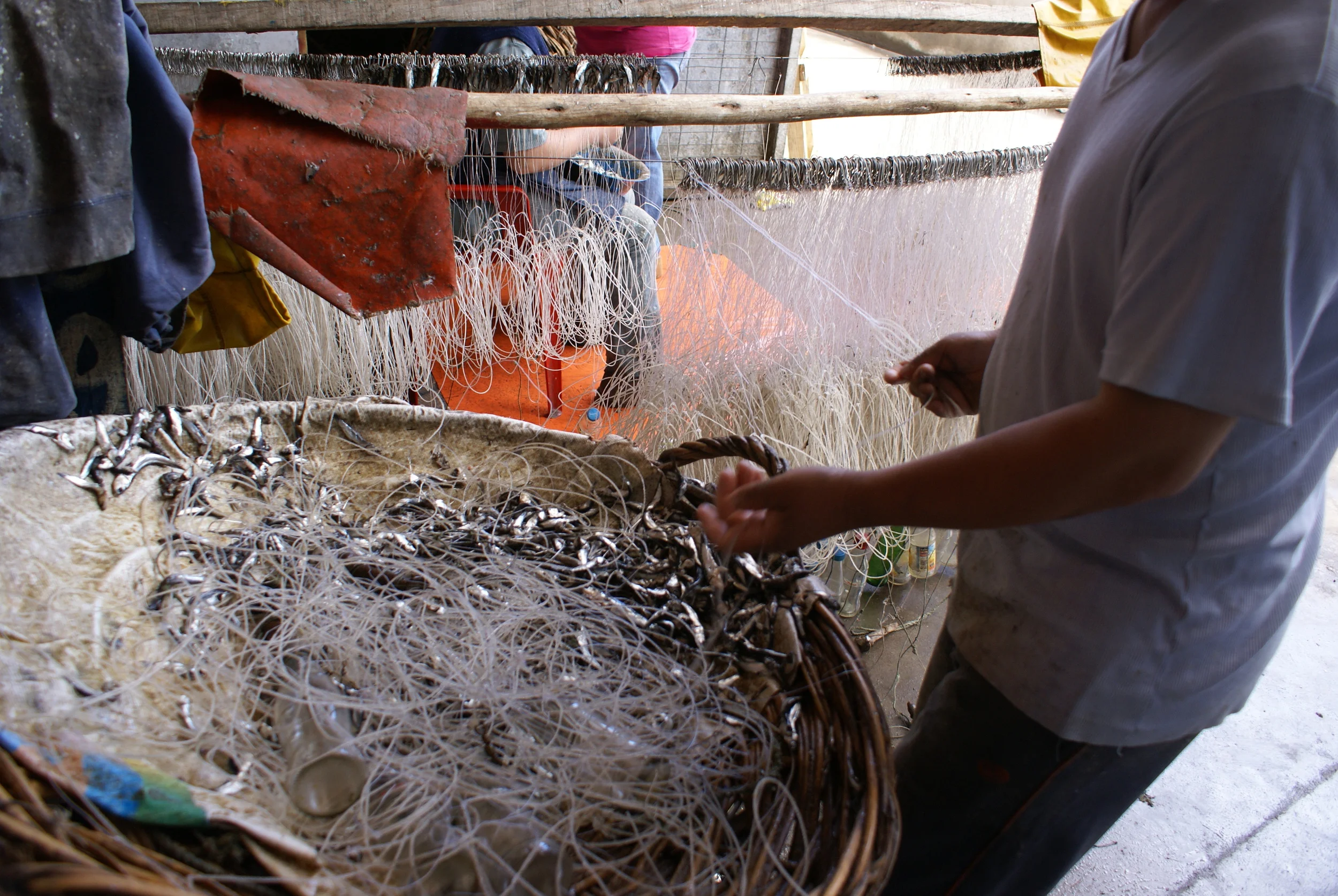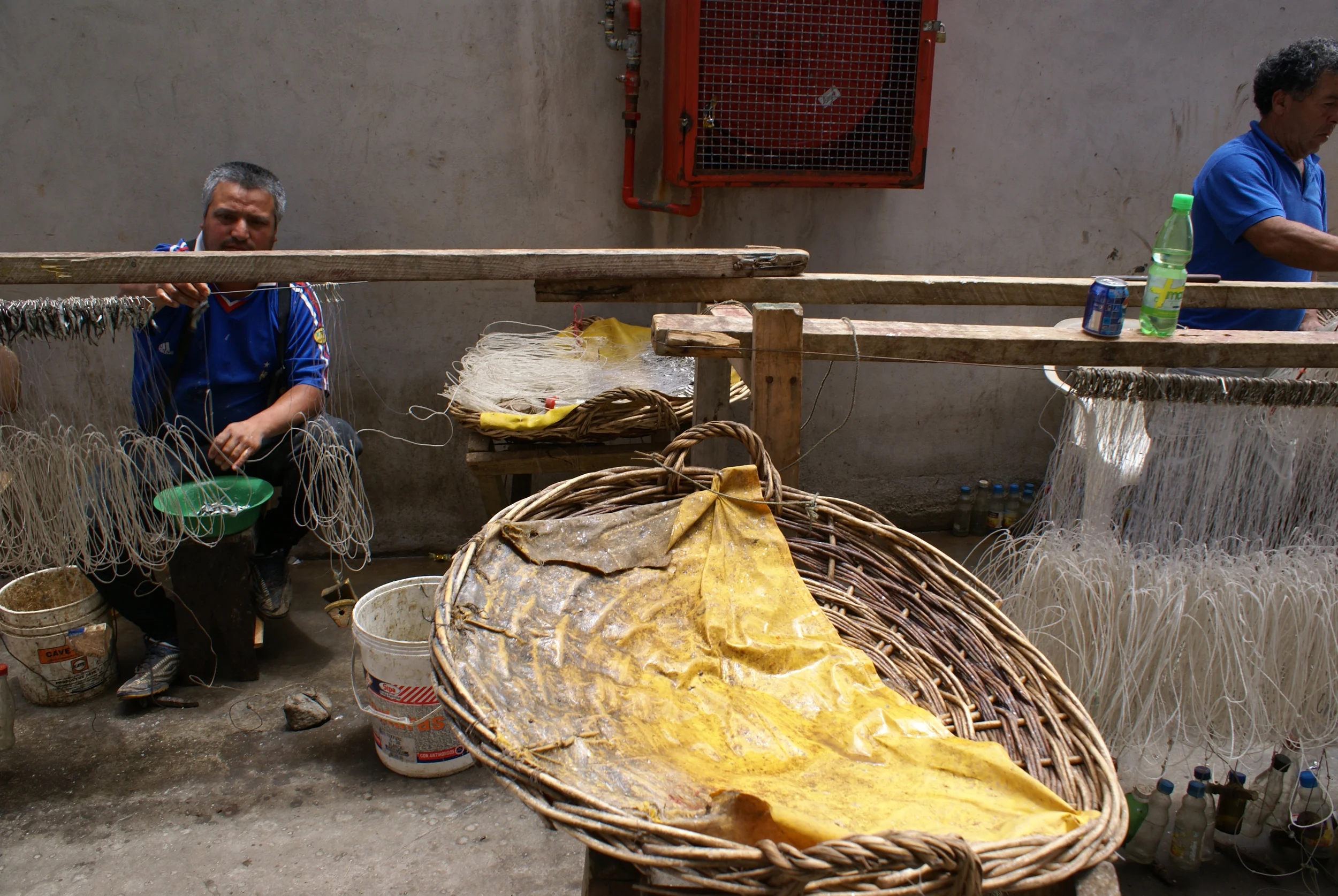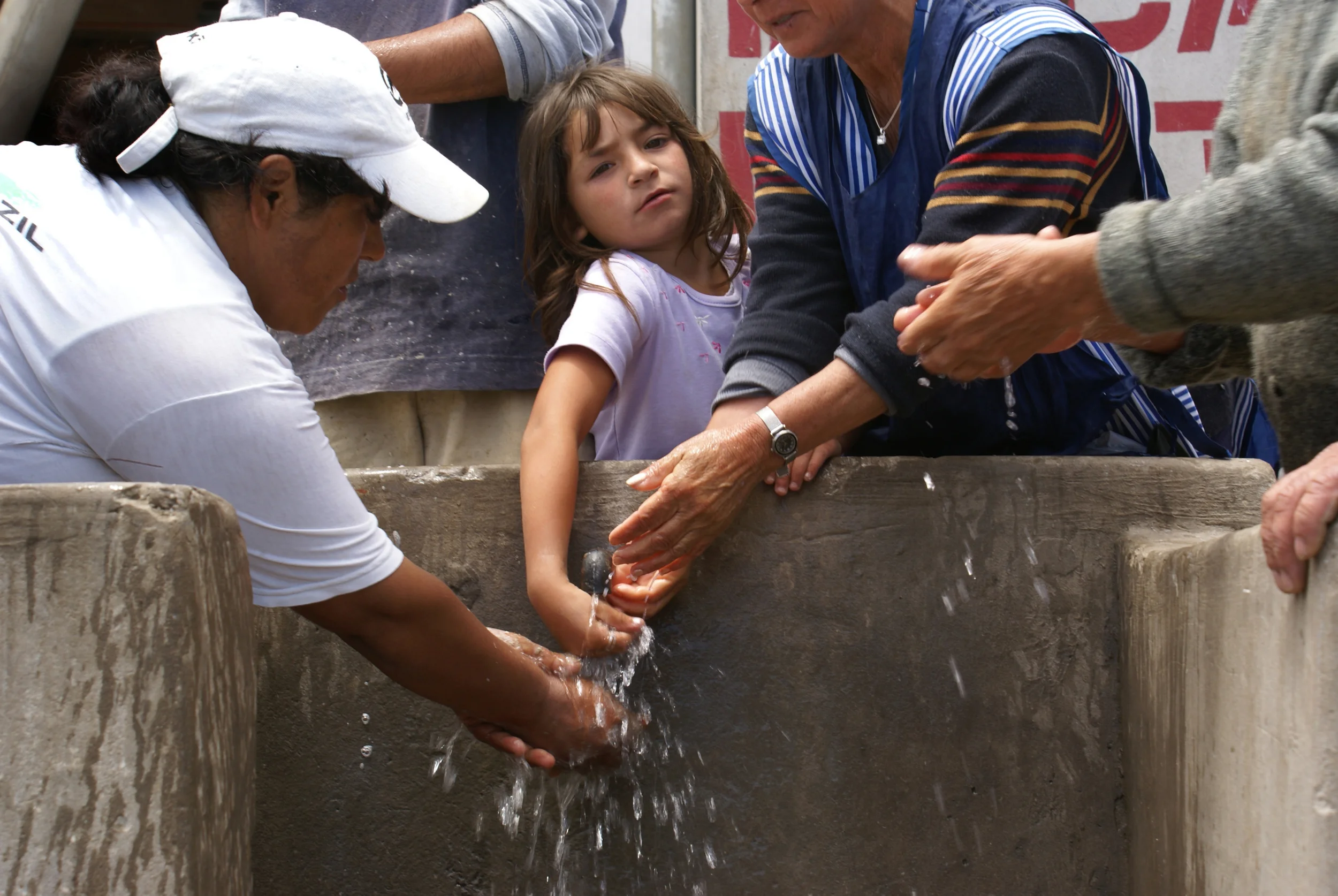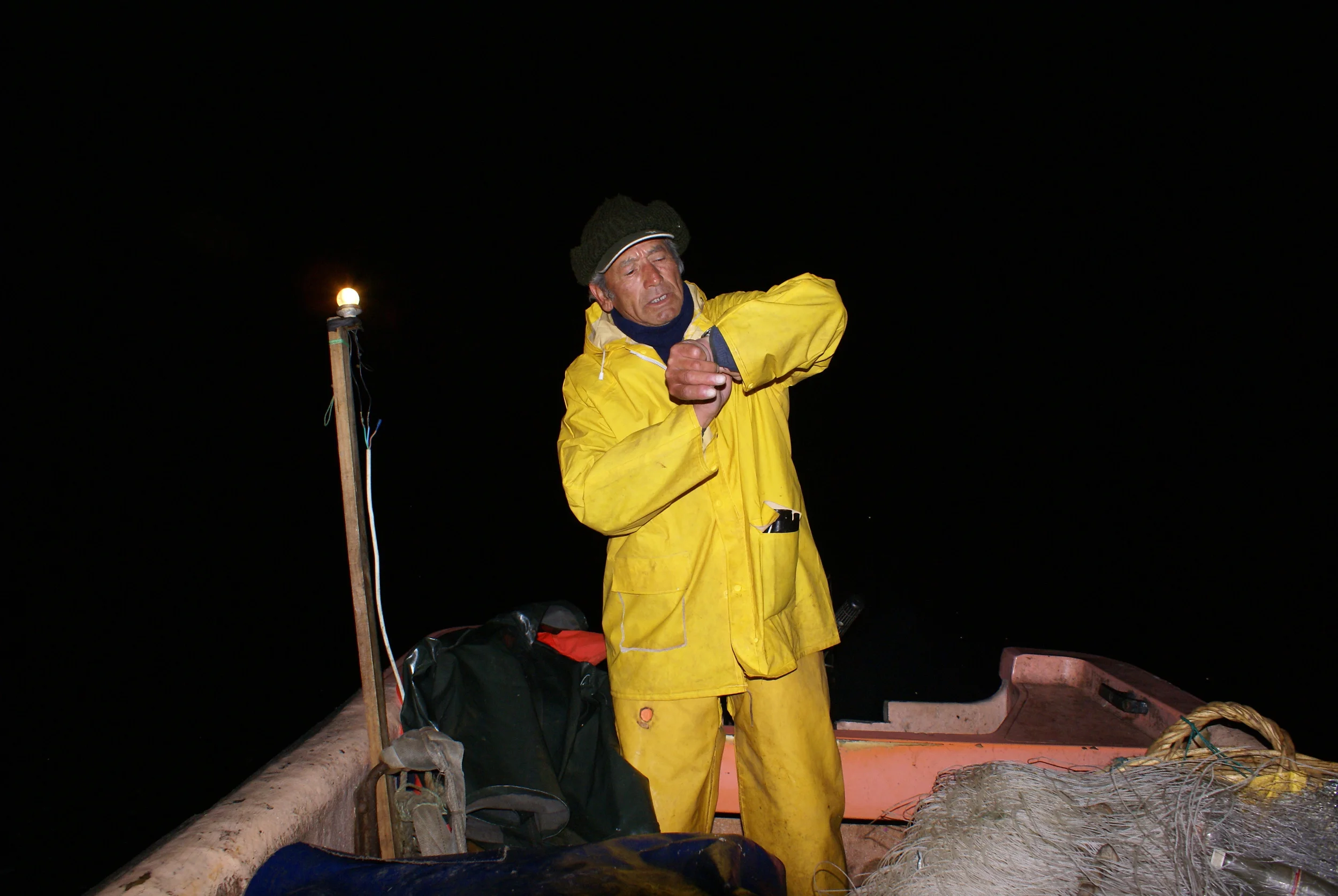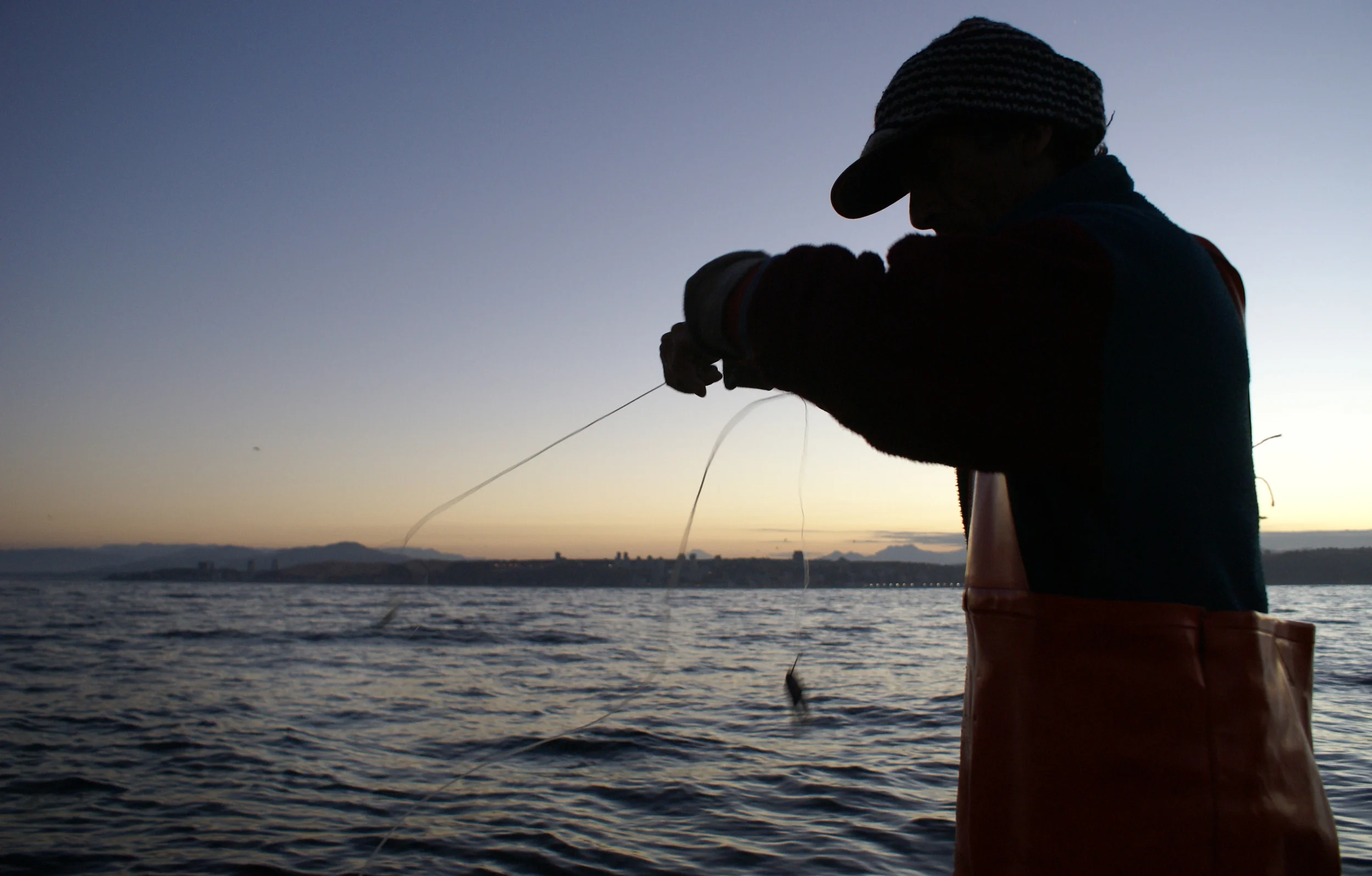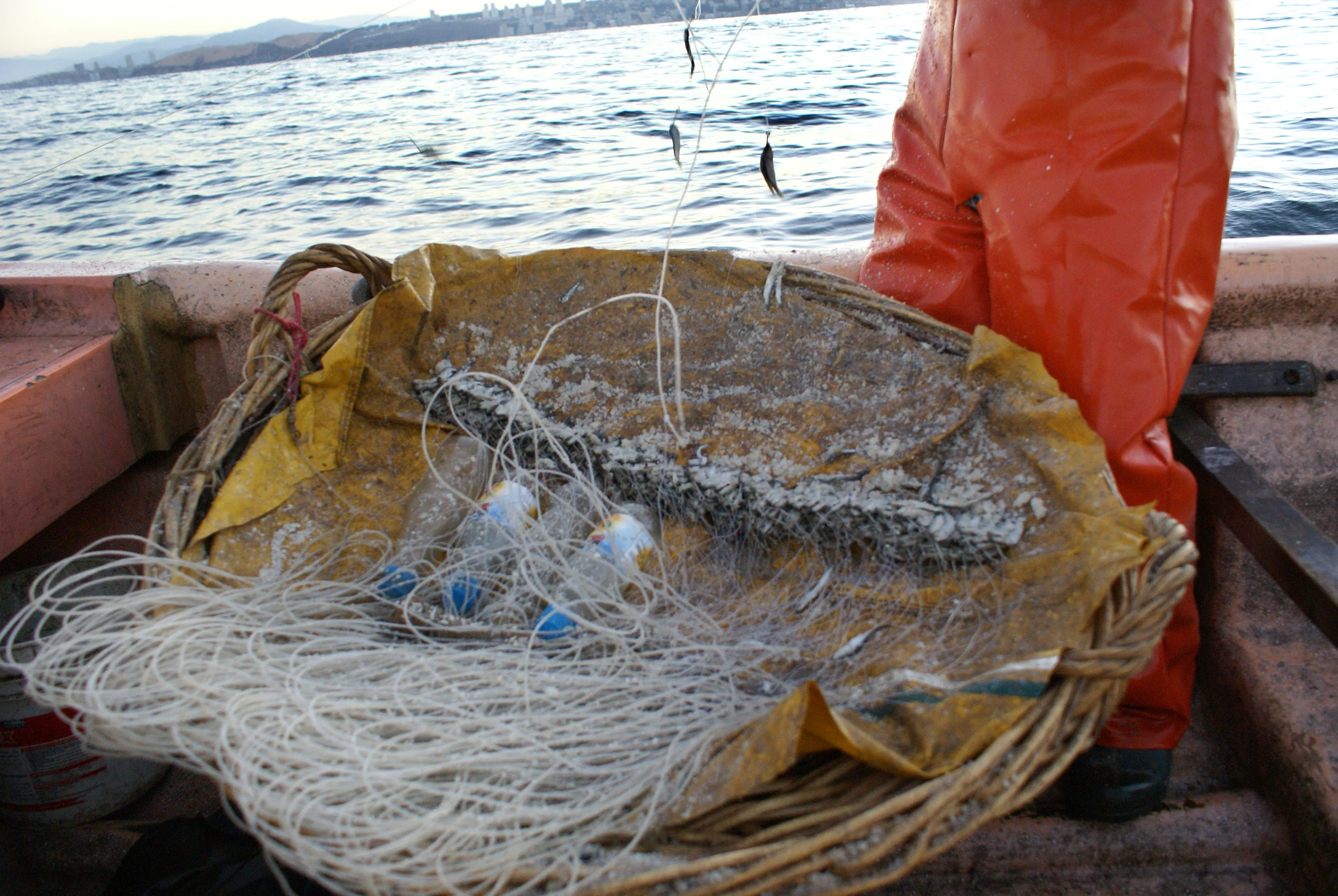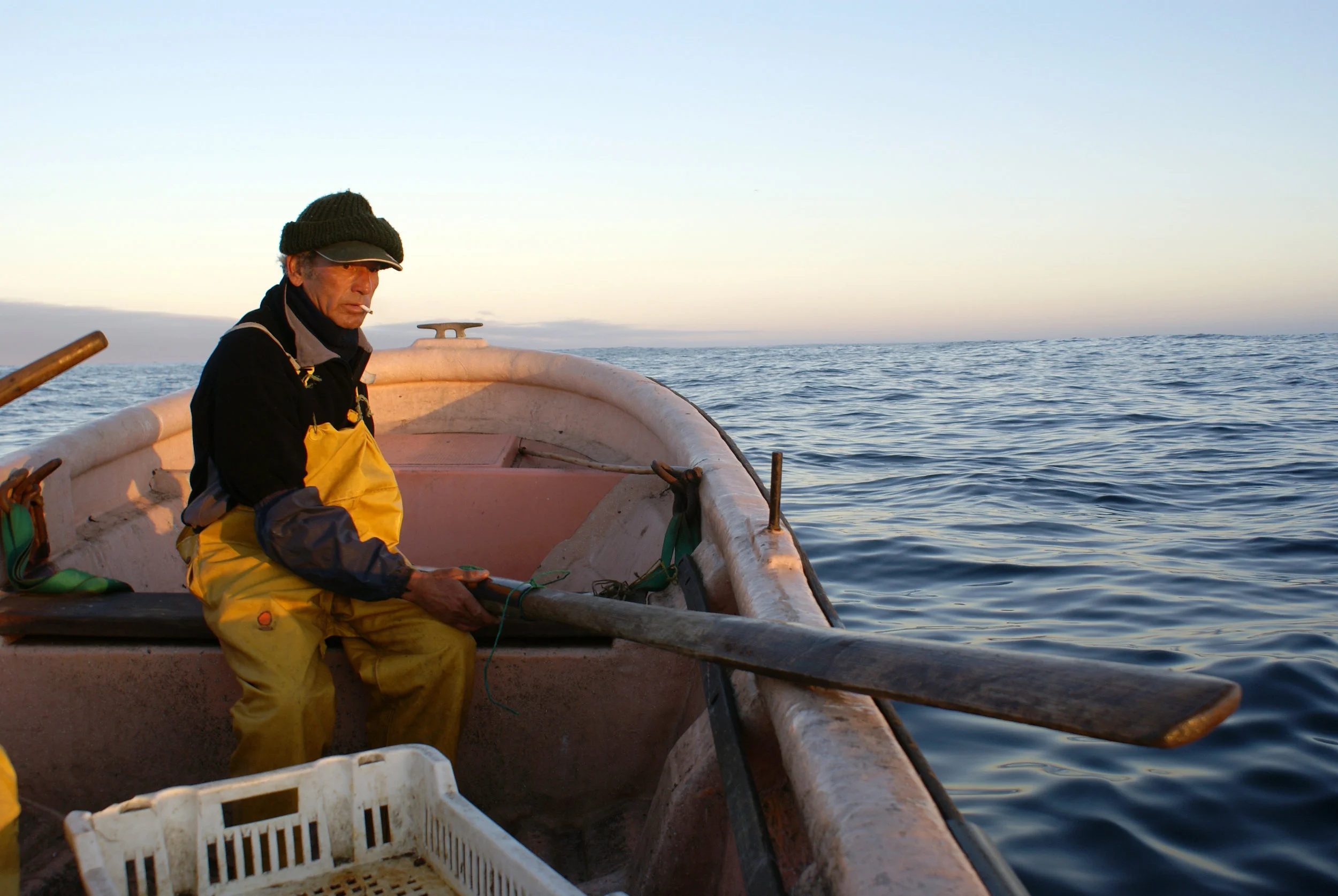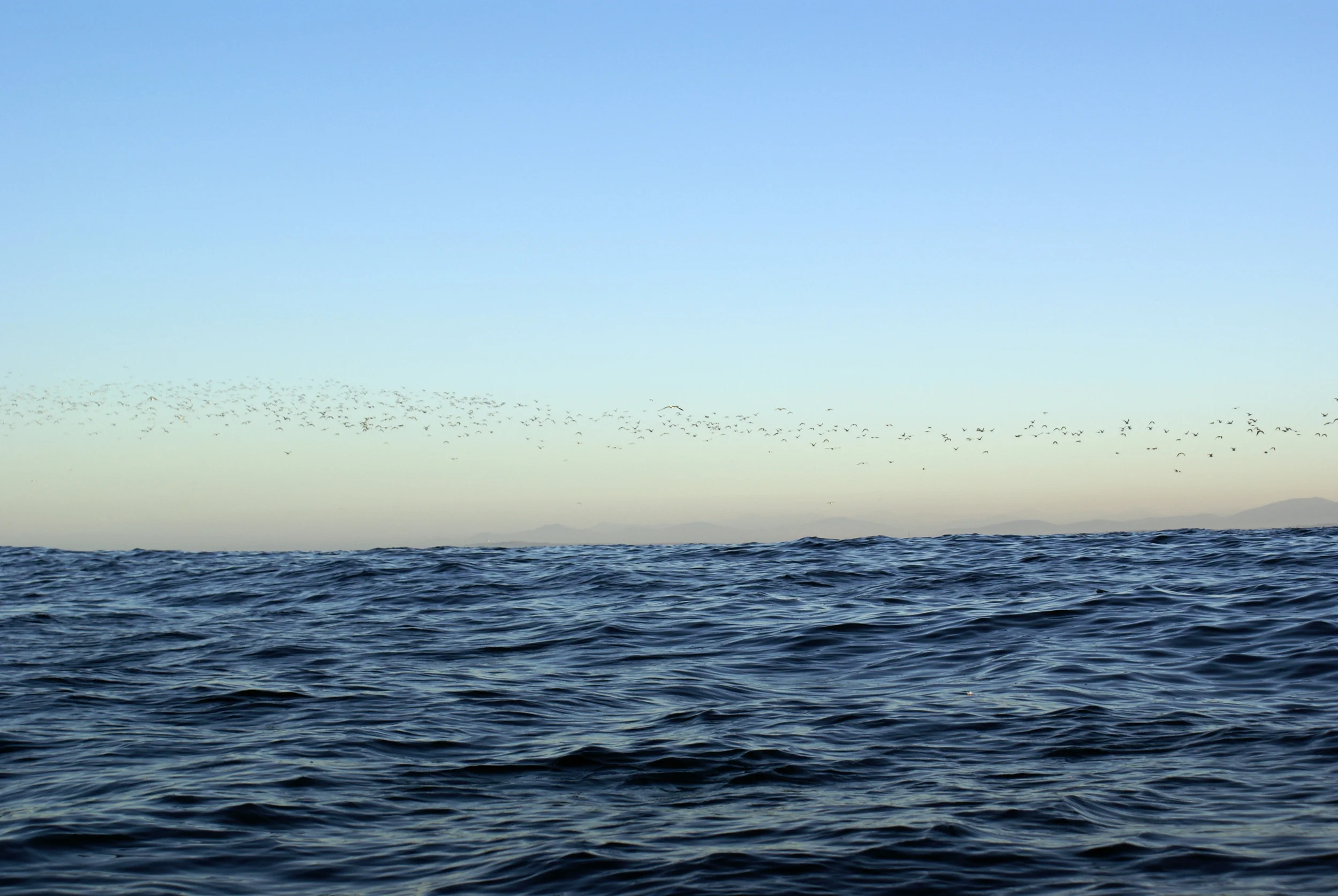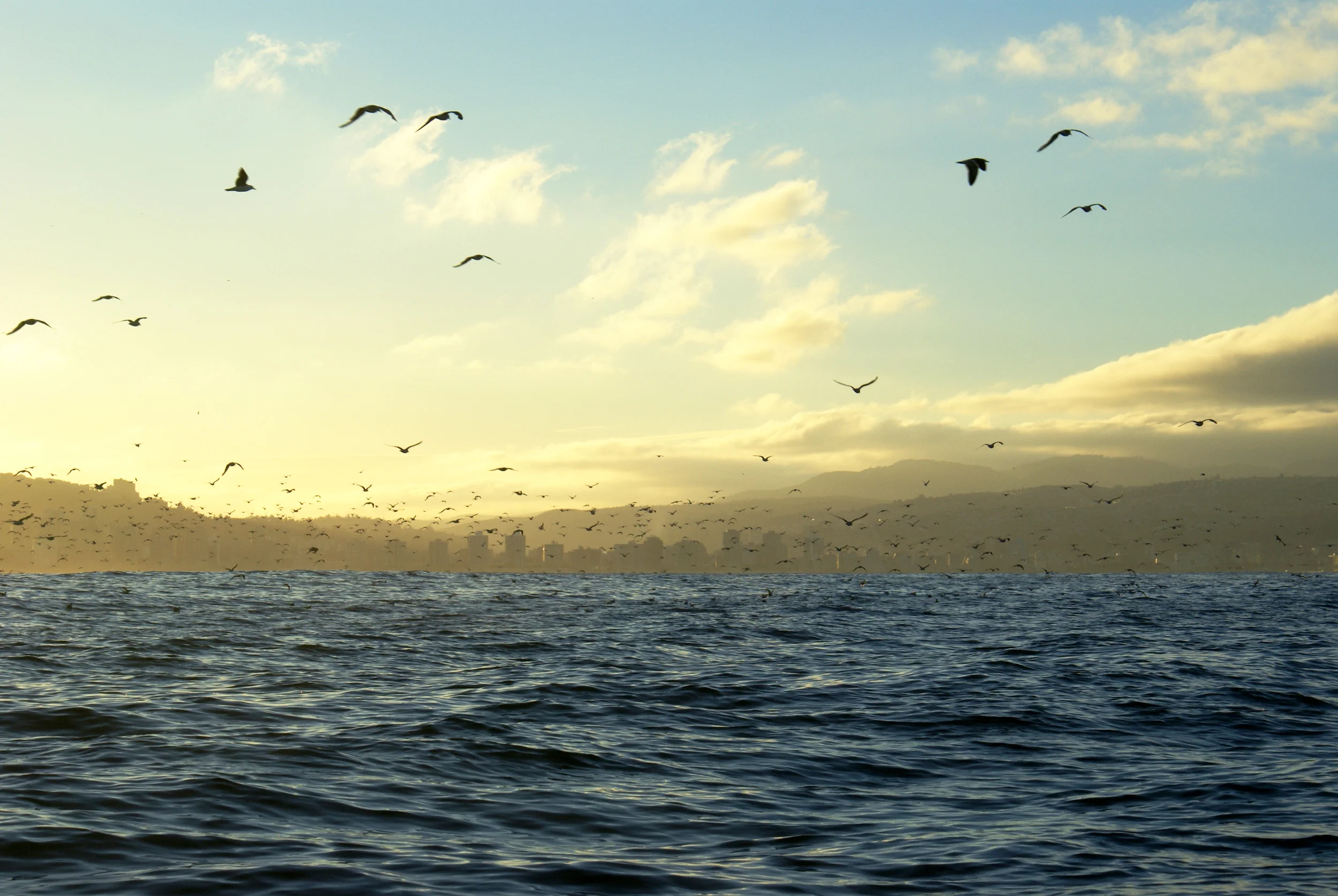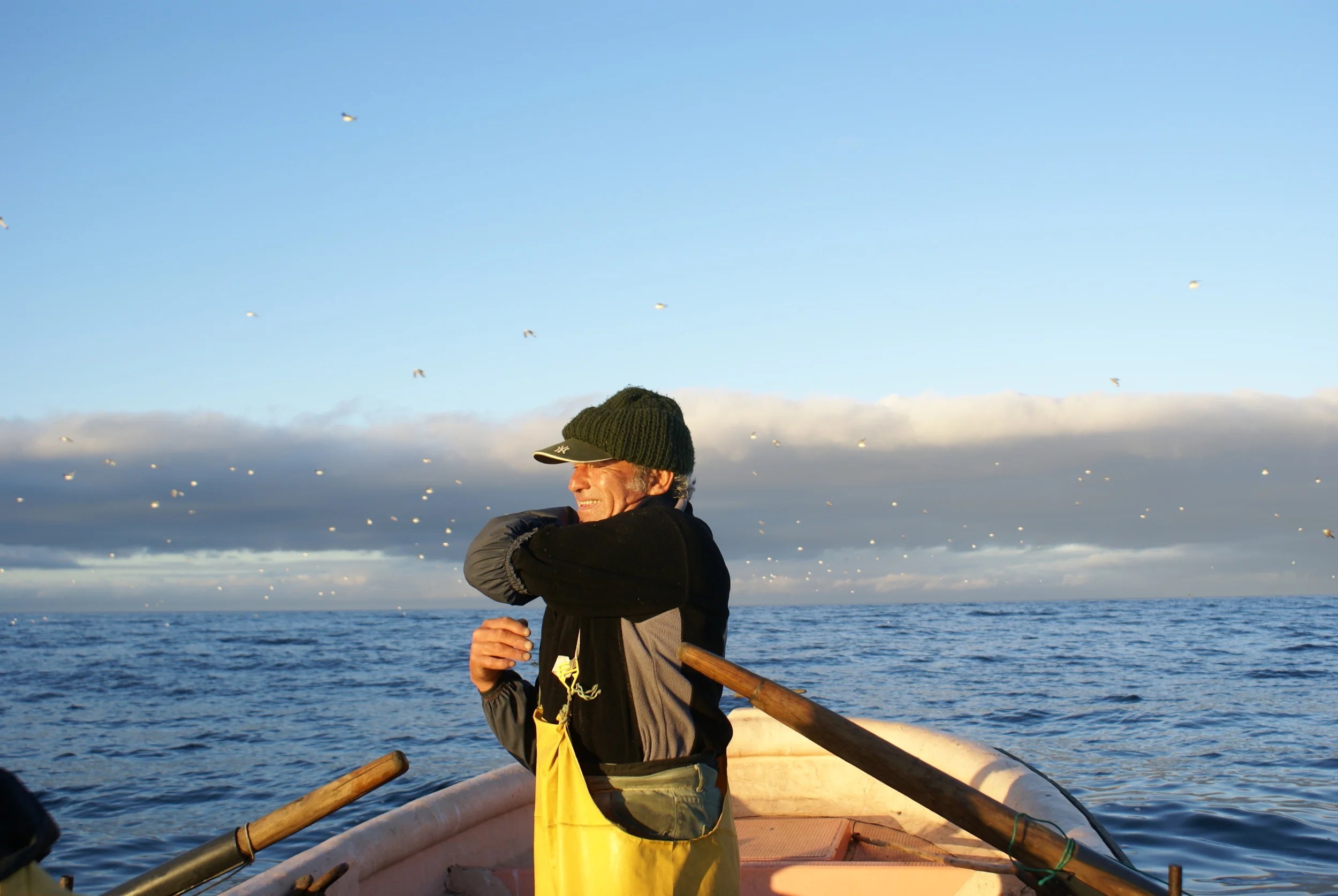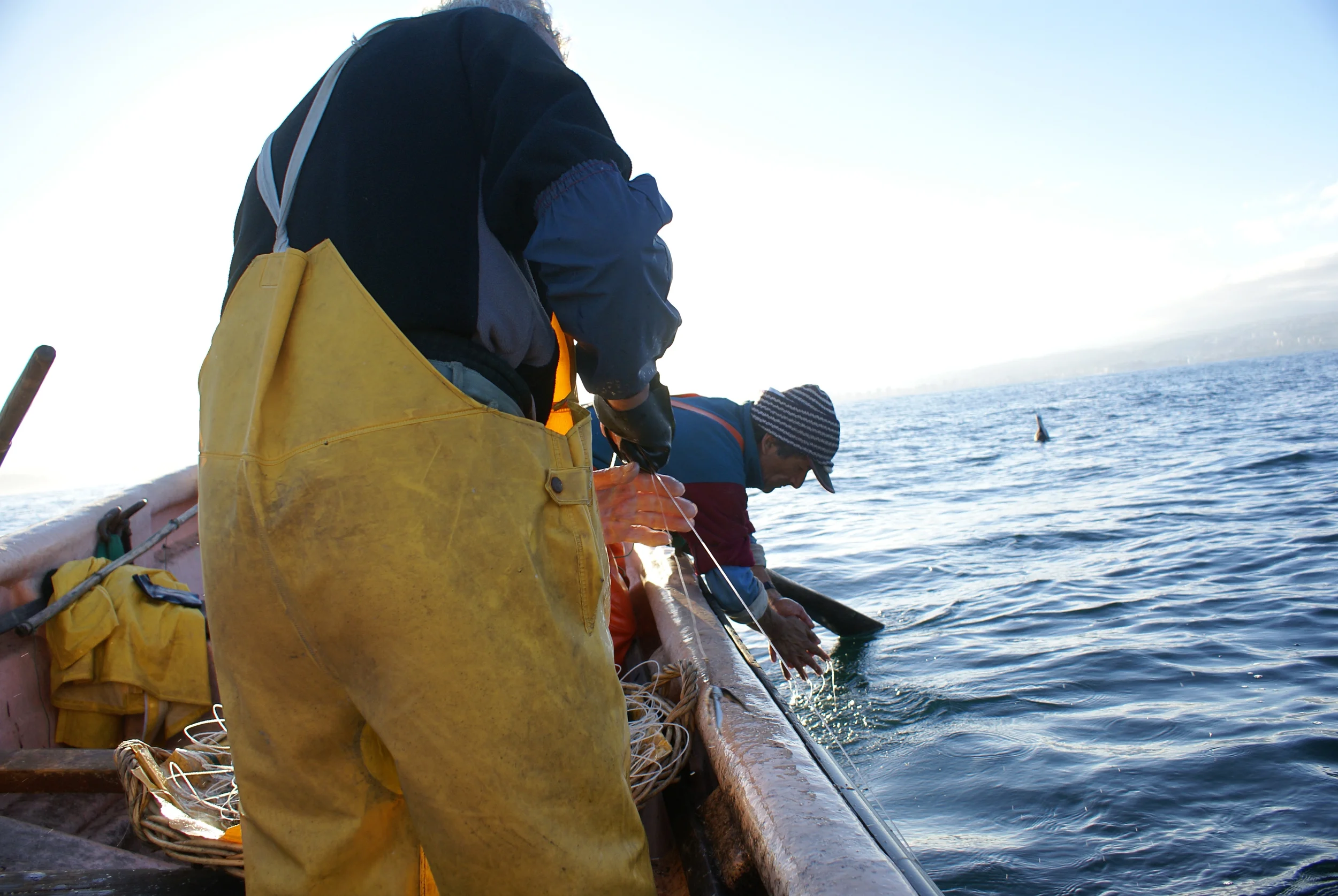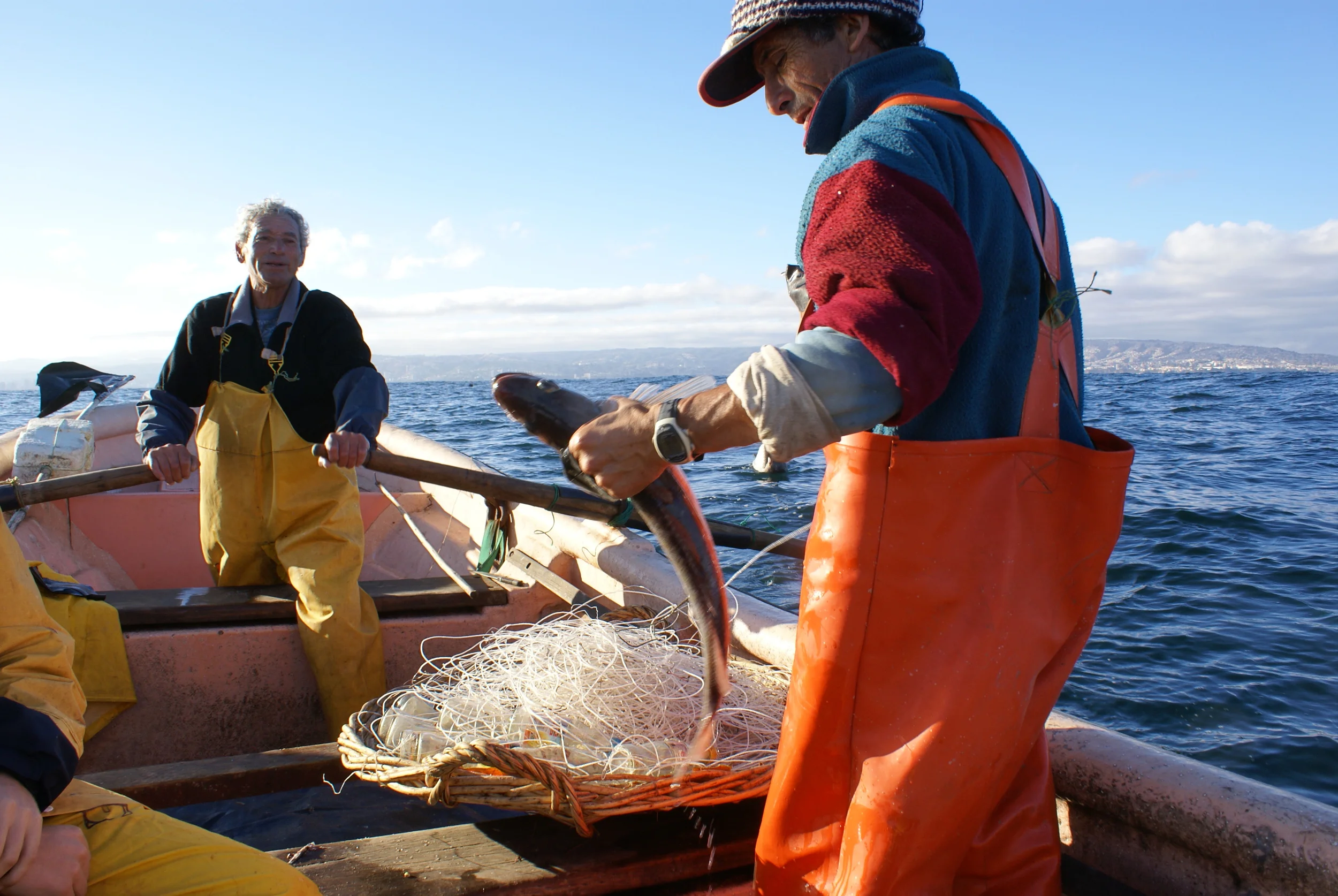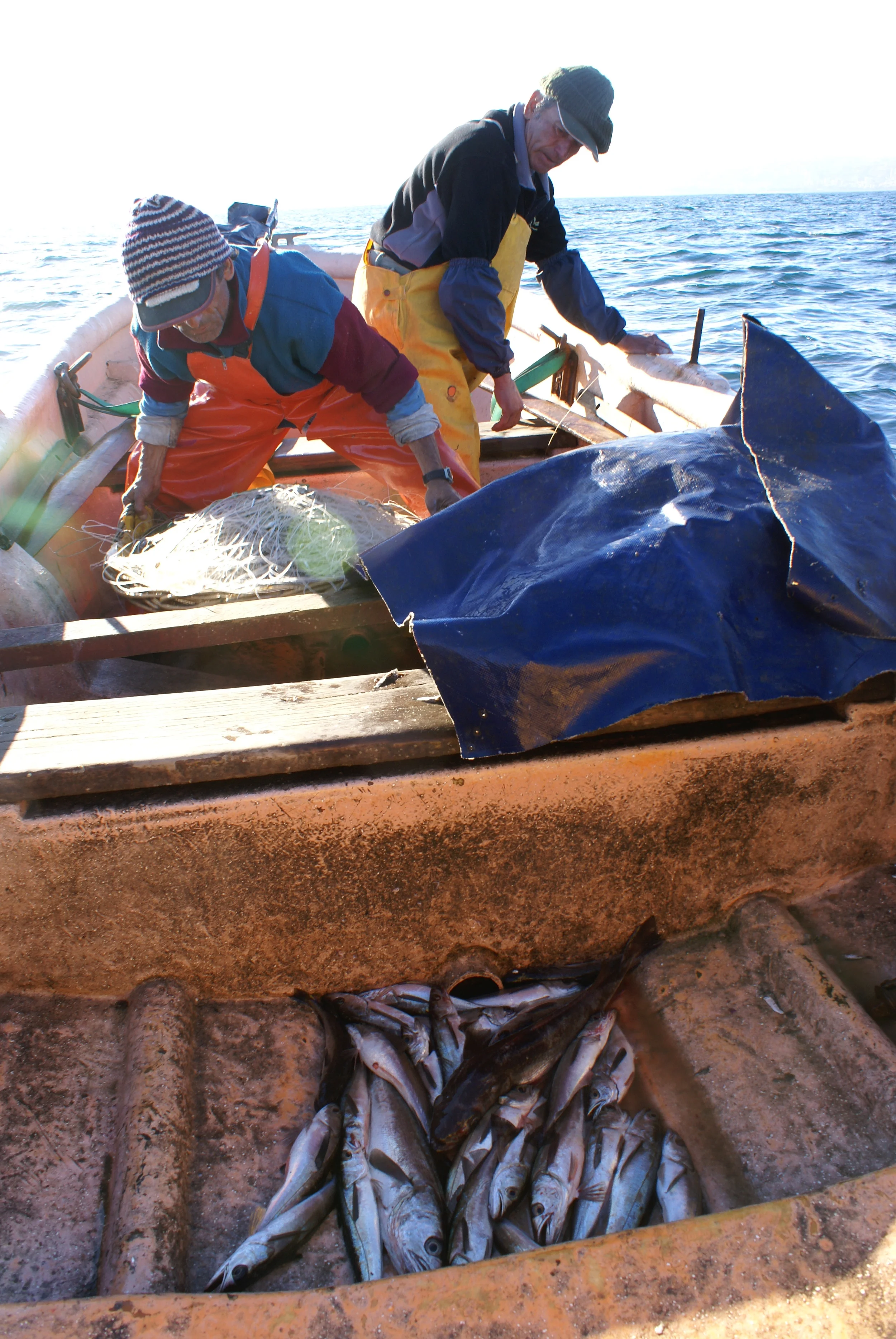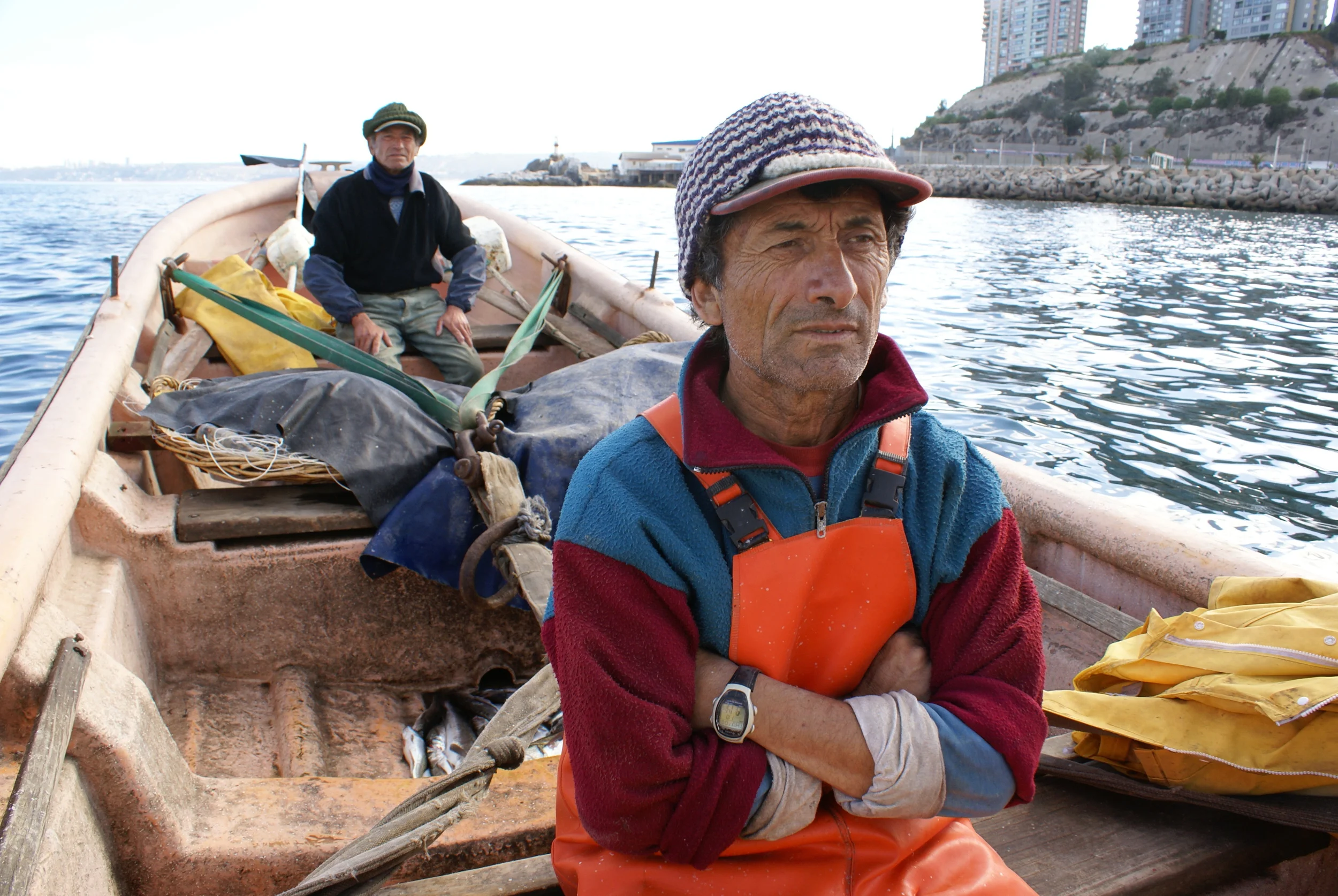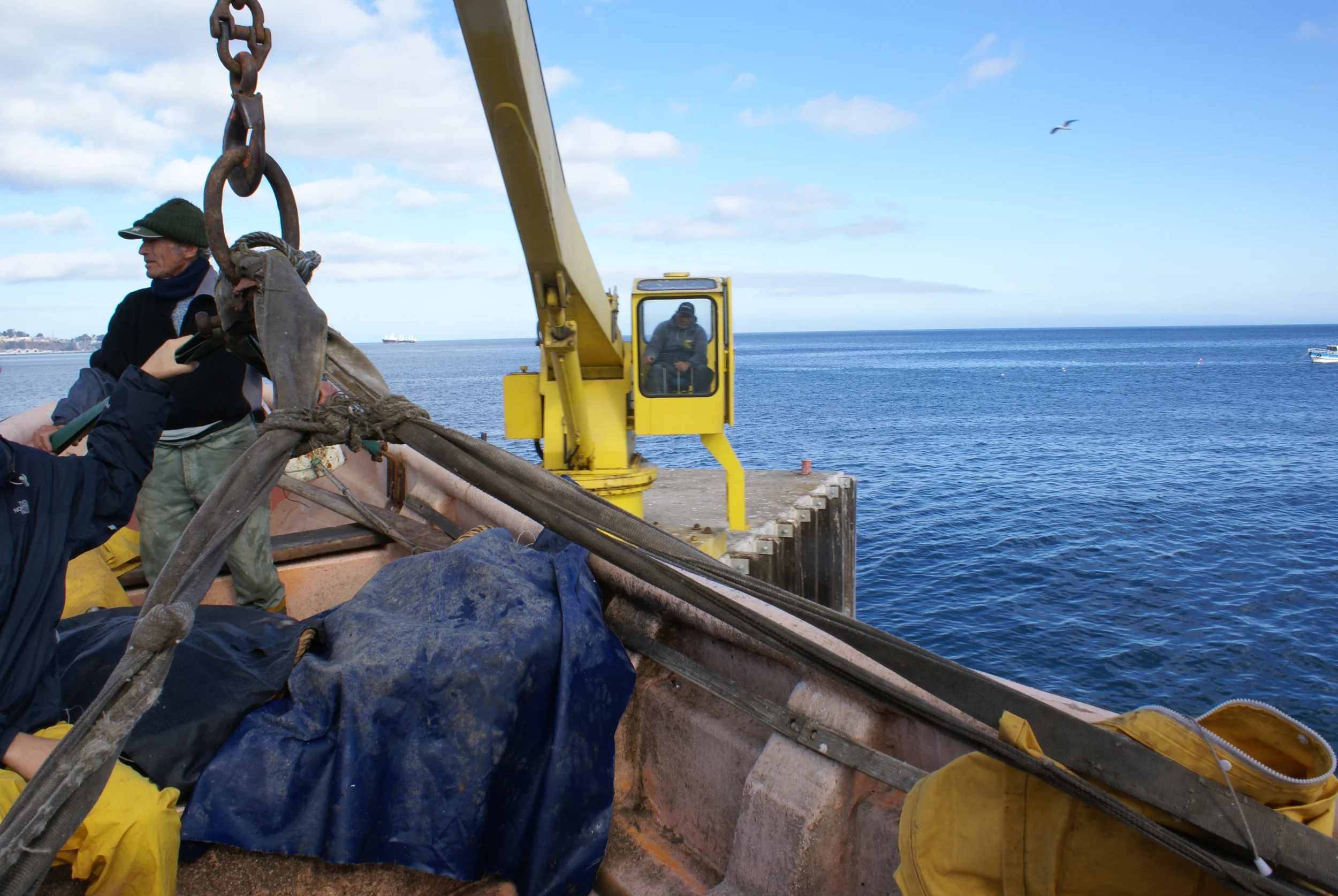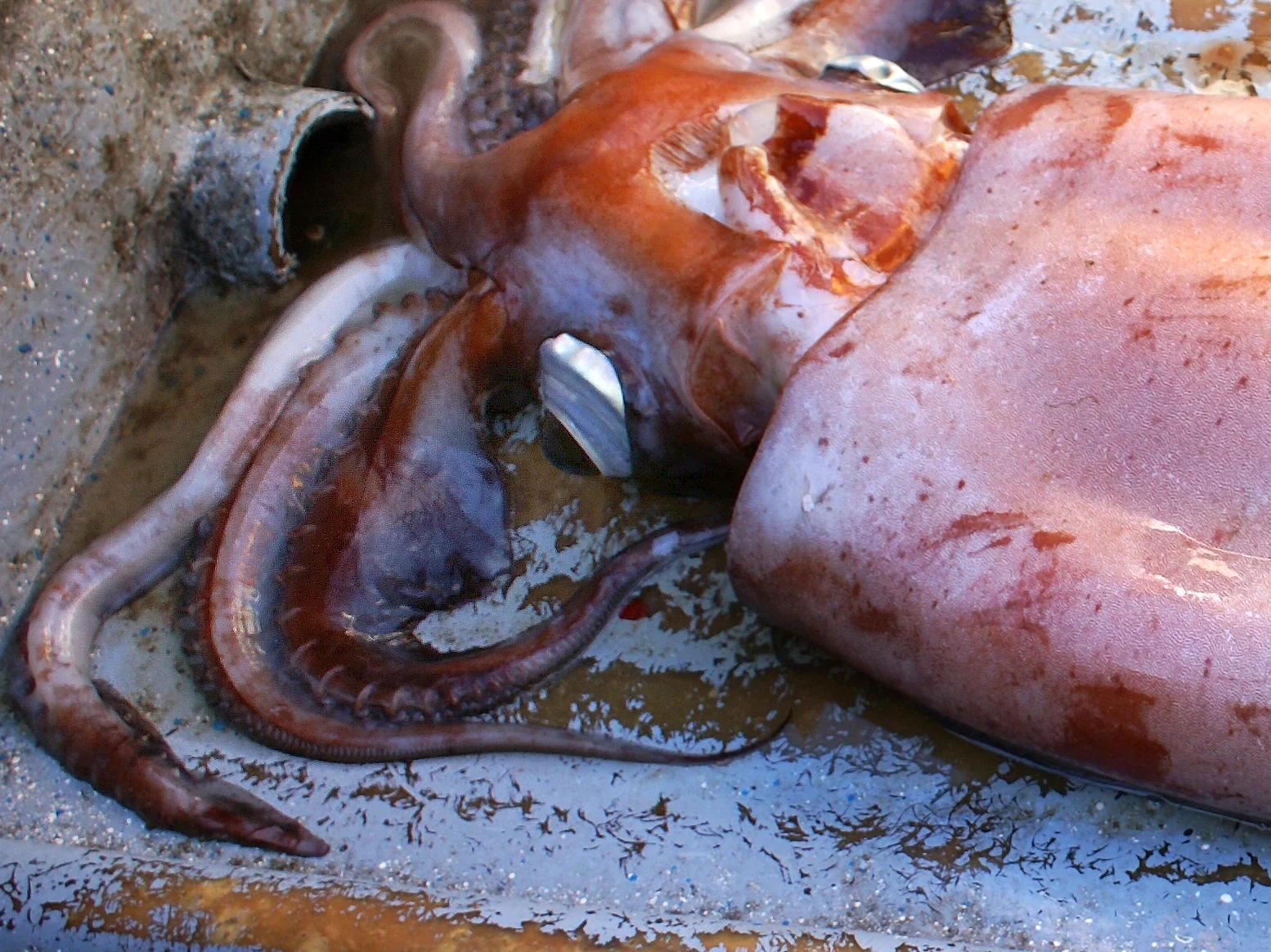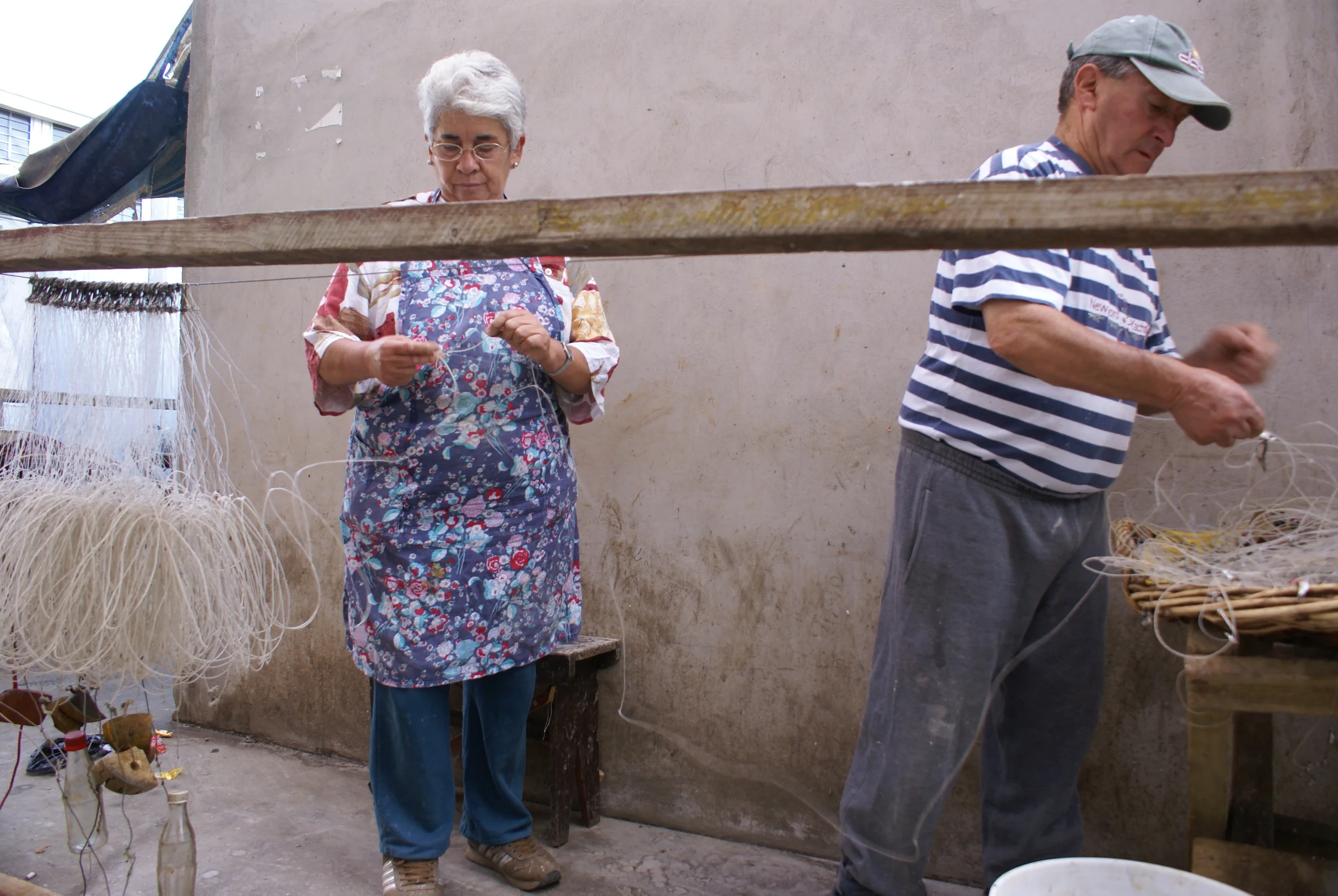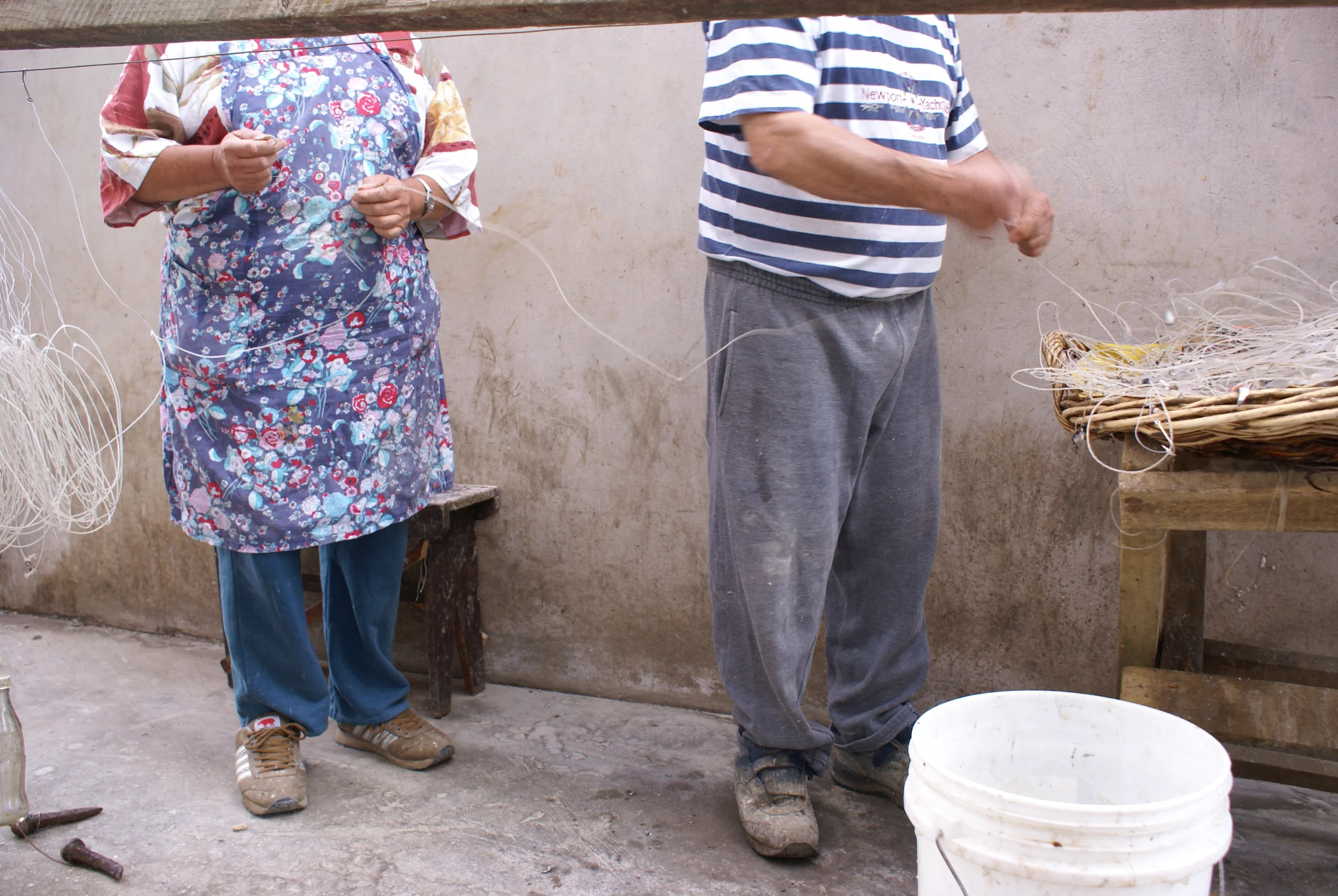caleta portales // adentro
caleta portales
Cuando conocí Caleta Portales en el año 2000, consistía en un mercado caleidoscópico de pescados y mariscos, y afuera, un lote abierto donde los pescadores y sus mujeres, hijos, y perros trabajaban alistando los hilos de anzuelo, gancho, y flote. Parecía que toda esta pequeña comunidad de pescadores artesanales estaba conectada por esos hilos, que cruzaban el cemento como los famosos alambres de los cerros de Valparaíso cruzan el cielo, para correr de mano a mano y terminar al fin en vueltas adornadas con pececitos plateados.
Ocho años después, se les había construido un nuevo edificio, inmenso, monolítico, concreto. Los pescadores quejaban que era más frío, y sobre todo, que los separaba, ya que cada uno tenía su propio espacio, pero estaban divididos por anchos muros. Ya los hilos se desenredaron, de tribu se volvieron familias.
Aun así, cada hilo tiene dos extremos, y todavía conecta al que va al mar con
la que se queda en la tierra.
caleta portales
The first time I visited Caleta Portales in 2000, it was a kaleidoscopic fish and shellfish market with an open lot outside where the fishermen and their wives, children, and dogs worked readying the lines of bait, hooks, and floats. It seemed like the whole little community of small-scale fishermen was connected by those lines, which criss-crossed the cement like the famous electrical wires in the Valparaiso hills cross the sky, running from hand to hand to eventually become tidy loops adorned with miniscule silver fish.
Eight years later, the City had built a new building for the Caleta: an immense, monolithic cement bulwark. The fishermen complained that it was colder than the old Caleta, and worse, that the thick walls separated them. The lines began to untangle; from a tribe, they became families.
Even still, every line has two ends, and it still connects the one who goes to sea with the one who stays on dry ground.
adentro
Juan me invitó adentro, lo cual, para él, significa al mar. Cuando salimos en su barquita negra, en el mar negro, bajo un cielo negro, estábamos solos: algunos seres, navío, vacío. Pero al amanecer, el mar meneó bajo su cobija brillante y el cielo de repente se llenó de pajaros, escuadrillas de pelícanos en sus vuelos de reconocimiento. Ya no tan solos. Las farolas de la cuidad se iban apagando.
Nos fue mal: una docena de merluzas y una jibia. Así ha sido, me dijo Juan. Supuso que eran los barcos de pesca industrial que agotaban los bancos de peces. O tal vez el efecto invernadero, que calentaba el mar y cambiaba los corrientes, ampliando el dominio de las jibias insaciables, que se comían todos los peces hasta dejar el puro esqueleto enganchado. De regreso a Caleta Portales, se veía que nadie había tenido suerte. El mercado que me había fascinado unos años antes con sus mariscos irreconocibles con nombres de gente, nombres como macha y choro y loco, con sus cortinas de congrios colgando a la venta, estaba casi vacío.
Juan mantuvo la fé. Mañana regreso a intentar, me dijo. No sé si lo que ganó le alcanzó siquiera para la bencina. Pero no se imagina aterrizado, manejando taxi, pintando casas. Lleva el mar adentro. El mar lo lleva.
inside
Juan
invited me inside, which, to him, meant to sea. When we embarked in his
little black boat, on the black water, under a black sky, we were
alone: a few humans, a ship, the universe. But at dawn, the sea stirred
beneath its brilliant cover and the sky suddenly filled with birds,
squadrons of pelicans on their reconnaissance flights. Not so alone. The
streetlights in the city turned off, one by one.
It went badly: a dozen hake and a squid. It's been like this, Juan said. He guessed it was the industrial fisheries that were depleting the schools. Or maybe the greenhouse effect, which warmed the sea and changed its currents, expanding the habitat of the voracious squid, which ate anything and everything, leaving only the skeleton on the hook. Arriving at Caleta Portales, we saw that no one else did better. The market that had fascinated me a few years ago with its unrecognizable shellfish with people names like macha and choro and loco, with its curtains of eels hanging out for sale, was almost empty.
Juan didn't lose faith. Tomorrow I'll try again, he told me. I don't know if what he made even covered the gasoline for the boat. But he can't imagine himself grounded, driving a taxi, painting houses. He carries the sea in him. The sea carries him.
